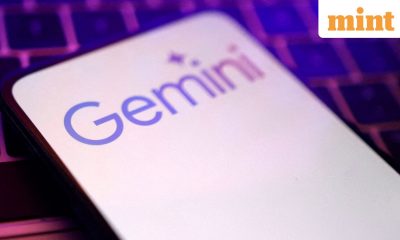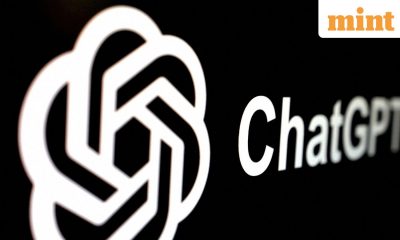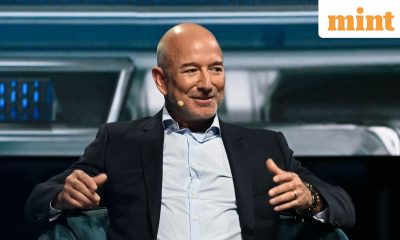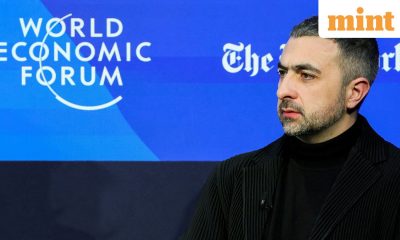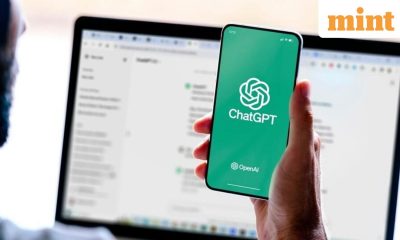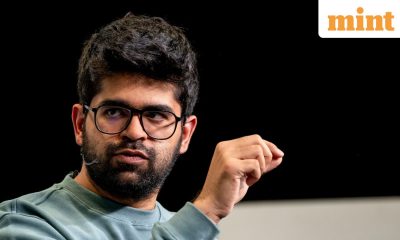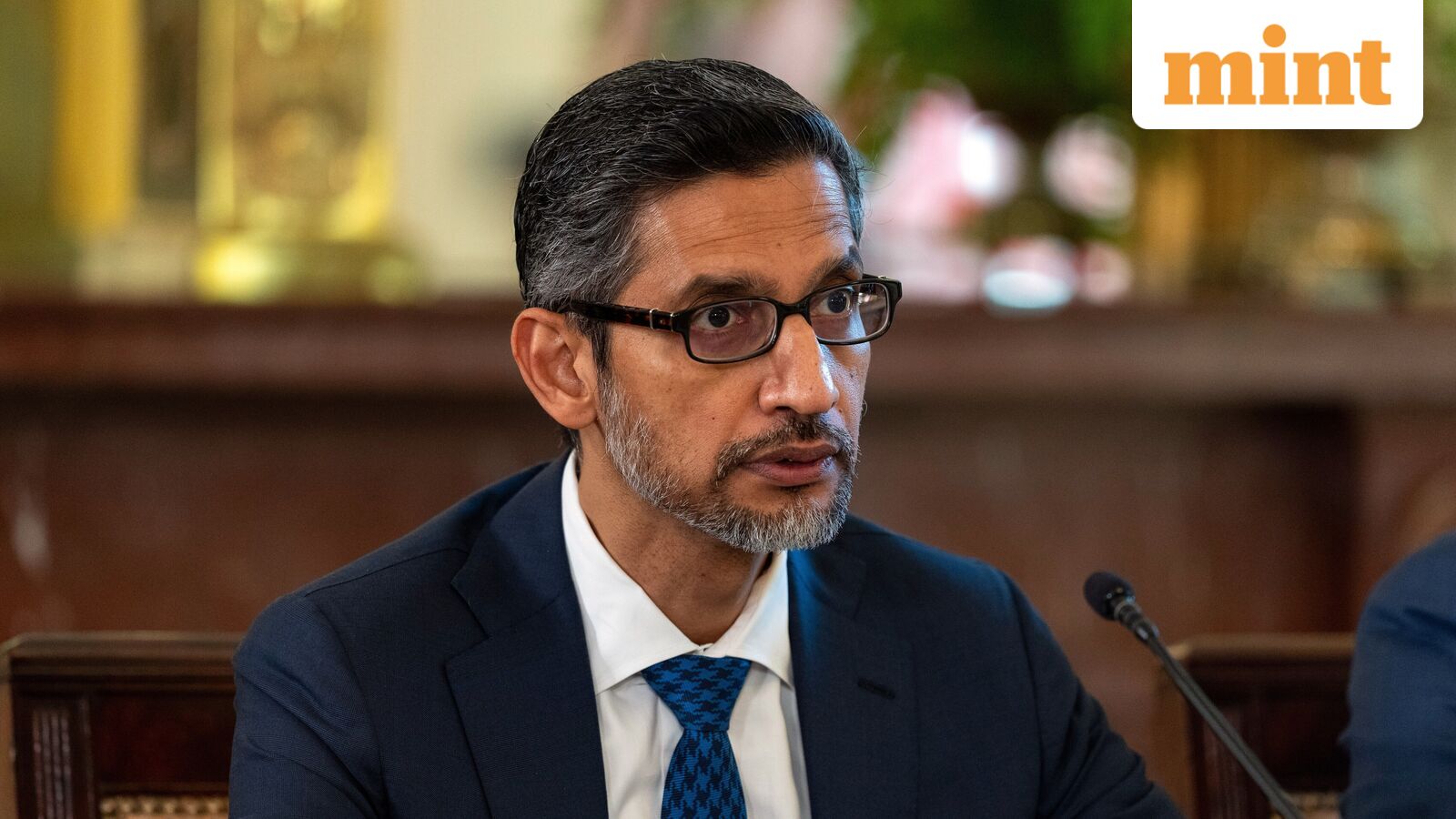
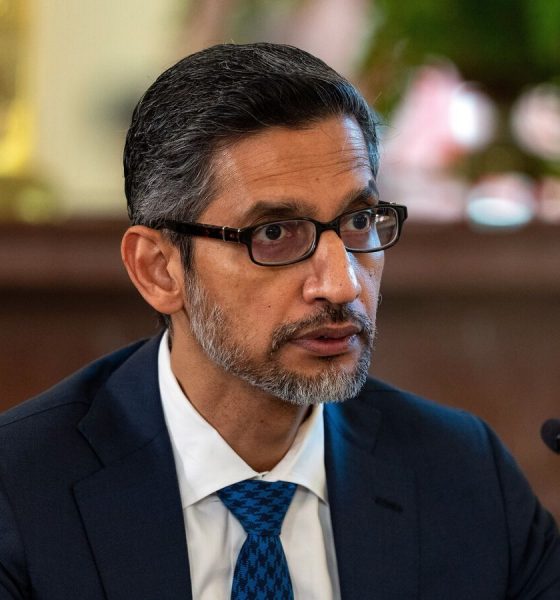
Metaverse
Alphabet’s Sundar Pichai admits no company immune if AI bubble bursts, but expects tech will last like internet – Crypto News
Alphabet CEO Sundar Pichai has admitted that an artificial intelligence (AI) bubble burst would have widespread impact across companies, including Google.
Speaking to the BBC on November 18, the tech chief said that “no company would be immune” including Google, if “irrational exuberance” in the AI market leads to a market bubble burst.
But overall, Pichai was optimistic about AI, noting that the scale of investments by the company has grown. “Four years ago, we were spending less than $30 billion per year. This year that number is going to be over $90 billion, and to collectively add, what all the companies are doing, we have well over a trillion dollars of investment going into building infrastructure for AI,” he noted.
The businessman explained the “scale equation” as what companies built over the past 10-20 years, is now being built in the next couple of years.
So, does Sundar Pichai think AI is a bubble ready to burst?
While optimistic about the technology, Pichai admitted that investment cycles can have “irrational” phases. When questioned directly on the bubble problem he said, “There are two ways of thinking about the question. I look at the actual progress, we are making in terms of the AI model capabilities, and people are using, and they’re deploying it. Consumers are excited and companies are using, so you see real demand.”
He added that while the excitement “is very rational, we go through these investment cycles, there are moments we overshoot.”
Pichai sought to explain that despite risks of a burst, AI is more like the internet that a passing fad. “Collectively as an industry, we can look back at the internet right now and there was clearly a lot of excess investment. But none of us would question whether the internet was profound or fundamentally changed how we work digitally as a society. I expect the AI to be the same. So I think it’s both rational and there are elements of irrationality.”
What about AI bubble burst impact on Google?
When asked if Google would be immune from a burst because of investments across technologies, Pichai was clear: “No company is going to be immune, including us.”
But added, “If you over invest, you will have to work through that phase. But you know, we are better positioned for many years. We’ve taken a deeply differentiated approach to AI.”
According to Pichai, one of the first things he did as CEO was to shift the company to an AI first approach. What does this mean? He said, “We call it a full stack approach. From the underlying physical infrastructure to the research that you need to do to drive this technology forward, to deploying it in products and platforms. We have taken the deep approach. So we are able to invest at scale and make it work across all these products and businesses And I think so we are better positioned to take a long-term view.”
Notably, Alphabet shares have surged about 46% in 2025, with even tech shy Warren Buffett‘s Berkshire Hathaway acquiring a $4.93 billion stake in the company.
What are the fears over AI bubble burst?
Notably, Pichai’s statements come amid rising concerns among investors that tech valuations have peaked. At risk is the trillions of dollars flushed into AI commitments such as advanced chips and billion-dollar data centres.
Investors’ worries have heightened as US economy bellwether Berkshire sits on record cash reserves instead of investing, and after billionaire Peter Thiel‘s hedge fund and Masayoshi Son’s SoftBank Corp both sold off stake in AI chips major Nvidia last week.
According to a regulatory filing with the United States Securities and Exchange Commission (US SEC) on November 14, Thiel Macros sold around 5,37,742 Nvidia shares — its entire stake in the tech company — worth around $100 million, as of closing on September 30, 2025.
Just a few days earlier on November 11, Masayoshi Son-led SoftBank Group Corp said that it had sold its stake in Jensen Huang’s company, pocketing $5.83 billion. However, it has continued to invest in Sam Altman-led OpenAI.
Investors will thus be closely tracking Nvidia’s Q3 results (due on November 19) to soothe concerns. At this point, the chipmaker’s demand pipeline might as well act as a bell weather for the entire AI industry.
Key Takeaways
- Alphabet and Google CEO Sundar Pichai admitted that the AI market is at risk of a bubble, with irrational investment cycles.
- He however compared AI’s potential to the foundational impact of the internet on society.
- Pichai added that Google’s shift to an AI-first approach positions it well for the future.
-

 Technology1 week ago
Technology1 week agoFlipkart deal alert: Samsung Galaxy S24 Ultra 5G available with up to ₹50,000 savings – here’s how the deal works – Crypto News
-
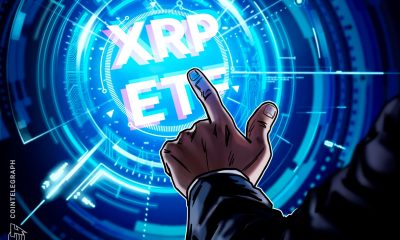
 Blockchain1 week ago
Blockchain1 week agoXRP ETFs Listed On DTCC Ahead Of Possible Launch – Crypto News
-
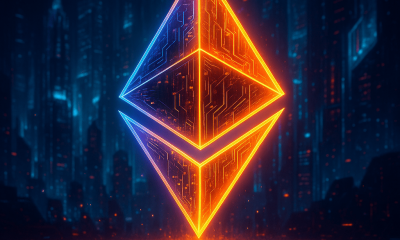
 Blockchain1 week ago
Blockchain1 week agoEthereum (ETH) Holds Strong as Analysts Target $4,400 Despite ETF Outflows – Crypto News
-
Technology1 week ago
Breaking: Coinbase Launches Token Sales Platform for Retail Investors – Crypto News
-
Business1 week ago
Michael Saylor Hints Bitcoin Buy As Goldman Sachs Predicts Three Fed Rate Cuts – Crypto News
-
Business1 week ago
Breaking: Coinbase Launches Token Sales Platform for Retail Investors – Crypto News
-
Technology1 week ago
Filecoin Price Rockets 51% as Grayscale’s FIL Holdings Hit Record High — What’s Next for FIL? – Crypto News
-
Business1 week ago
Trump Tariffs: Crypto Market Surges After $400B Dividend Announcement for Americans – Crypto News
-
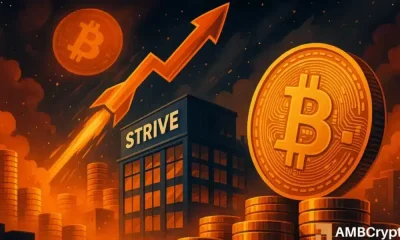
 Cryptocurrency1 week ago
Cryptocurrency1 week agoHow Strive’s $162M Bitcoin bet could make it the next MicroStrategy – Crypto News
-

 Cryptocurrency1 week ago
Cryptocurrency1 week agoWhat is the Fusaka Upgrade? Ethereum’s Biggest Scaling Bet Yet – Crypto News
-
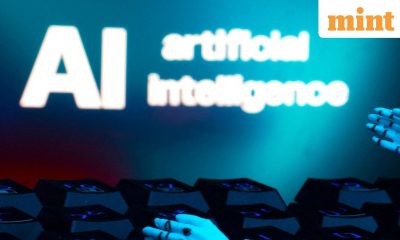
 Metaverse1 week ago
Metaverse1 week agoWhat’s in India’s first AI rulebook? – Crypto News
-
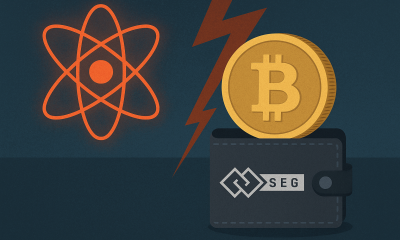
 Cryptocurrency1 week ago
Cryptocurrency1 week agoBitcoin faces quantum risk: why SegWit wallets may offer limited protection – Crypto News
-
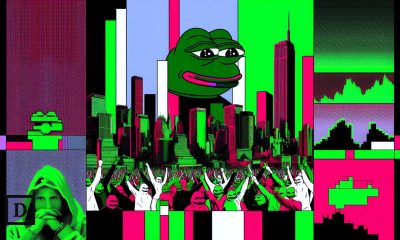
 De-fi1 week ago
De-fi1 week agoBTC Holds Out Above $102,000 as Markets Trade Flat – Crypto News
-
Business1 week ago
Post-Giveaway Supply Shock: Impact on FUNToken’s Liquidity and Market Depth – Crypto News
-
Technology1 week ago
Michael Saylor Hints Bitcoin Buy As Goldman Sachs Predicts Three Fed Rate Cuts – Crypto News
-

 Blockchain1 week ago
Blockchain1 week agoSolana (SOL) Turns Positive Amid Market Calm — Does the Trend Have Legs? – Crypto News
-

 De-fi6 days ago
De-fi6 days agoZEC Jumps as Winklevoss‑Backed Cypherpunk Reveals $100M Zcash Treasury – Crypto News
-
others1 week ago
Bitcoin vs Gold: BitMEX Co-Founder Arthur Hayes Explains Why Nations Still Prefer Buying Gold – Crypto News
-
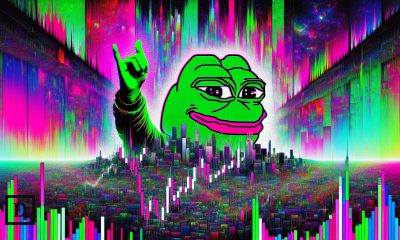
 De-fi1 week ago
De-fi1 week agoBitcoin Hovers Around $105,000 as Government Shutdown Progress Lifts Markets – Crypto News
-

 Blockchain1 week ago
Blockchain1 week agoSquare Enables Bitcoin Payments for Sellers – Crypto News
-
others1 week ago
Breaking: Canary XRP ETF Gets Approval with 8-A Filing to List on Nasdaq – Crypto News
-
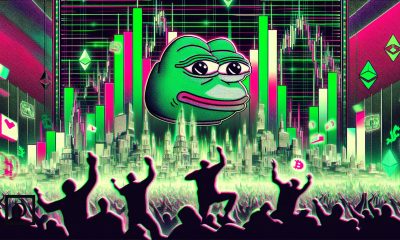
 De-fi5 days ago
De-fi5 days agoKraken’s xStocks Hit $10B in Total Trading Volume – Crypto News
-
Business1 week ago
Bitget Taps Ex-Adobe Marketer as CMO to Push Towards ‘Universal Exchange’ – Crypto News
-
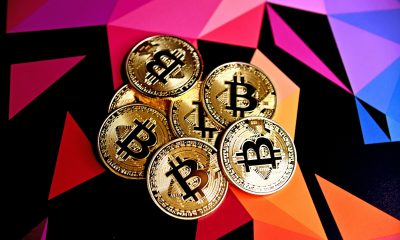
 Blockchain1 week ago
Blockchain1 week agoAmerican Bitcoin Now Holds Over 4,000 BTC – Crypto News
-

 Cryptocurrency1 week ago
Cryptocurrency1 week agoDecred defies market downtrend, jumps to 4-year high: analysts see path to $100 – Crypto News
-

 others1 week ago
others1 week agoGold retreats from three-week high but retains bullish outlook – Crypto News
-
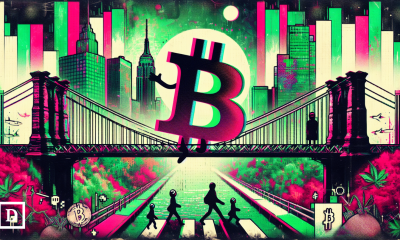
 De-fi1 week ago
De-fi1 week agoThreshold Network Upgrades tBTC Bridge to Link Institutional Bitcoin with DeFi – Crypto News
-
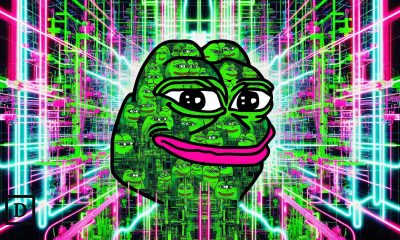
 De-fi7 days ago
De-fi7 days agoTrump Tokens Outperform After US President Teases ‘Tariff Dividends’ – Crypto News
-
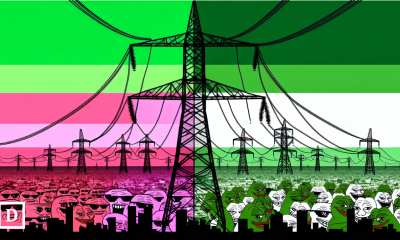
 De-fi7 days ago
De-fi7 days agoXPL Rallies After Plasma Reveals Collaboration with Daylight Energy – Crypto News
-
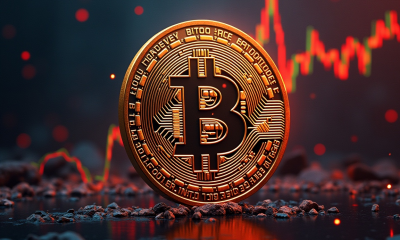
 Cryptocurrency6 days ago
Cryptocurrency6 days agoBitcoin (BTC) battles macro headwinds despite improved ETF inflows – Crypto News
-

 Metaverse4 days ago
Metaverse4 days agoClaude Desktop is your new best friend for an organized PC – Crypto News
-

 Metaverse4 days ago
Metaverse4 days agoClaude Desktop is your new best friend for an organized PC – Crypto News
-
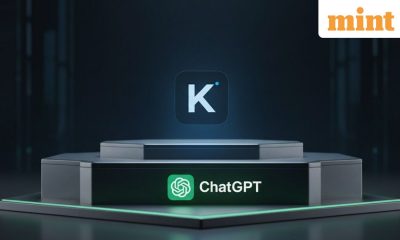
 Metaverse1 week ago
Metaverse1 week agoWhat is Kimi AI? Chinese chatbot beats ChatGPT, Claude on major benchmarks – Crypto News
-
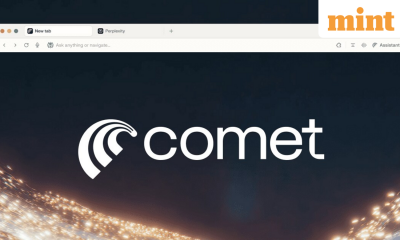
 Technology1 week ago
Technology1 week agoPerplexity AI is finally bringing Comet browser to Android: here’s who gets access first – Crypto News
-
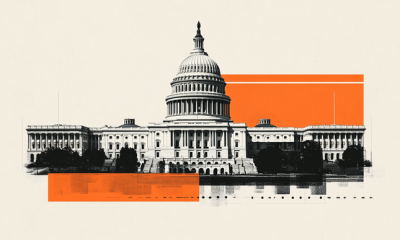
 others1 week ago
others1 week agoUS Senate advances government funding bill to end shutdown – Crypto News
-
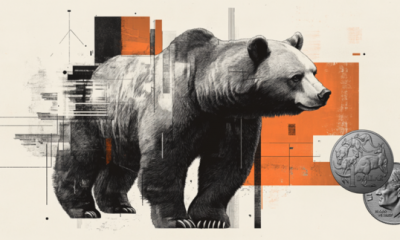
 others1 week ago
others1 week agoAustralian Dollar loses ground despite stronger Westpac Consumer Confidence – Crypto News
-
others1 week ago
Bitcoin News: BTC Exchange Reserves Fall as Tether Mints $1B USDT – Crypto News
-
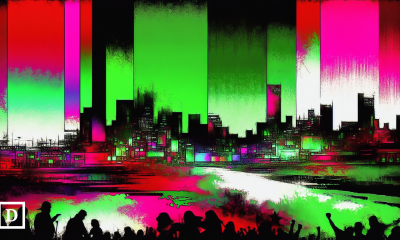
 De-fi1 week ago
De-fi1 week agoMonad Faces Community Backlash After Unveiling Tokenomics – Crypto News
-

 De-fi1 week ago
De-fi1 week agoInstitutional Sentiment is Turning Bearish on Crypto: Sygnum – Crypto News
-
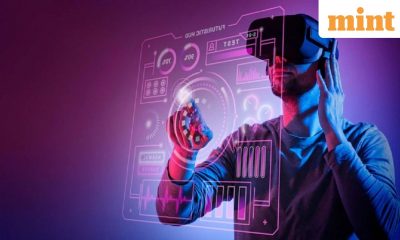
 Technology1 week ago
Technology1 week agoChinas cryptoqueen jailed in UK over $6.6 billion Bitcoin scam – Crypto News
-
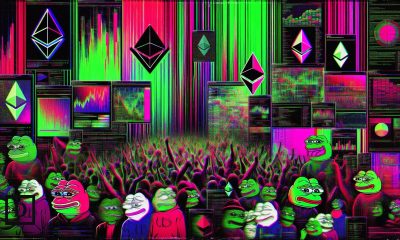
 De-fi1 week ago
De-fi1 week agoEthereum Sees First Sustained Validator Exit Since Proof-of-Stake Shift – Crypto News
-

 De-fi6 days ago
De-fi6 days agoSKY Surges 14% as Savings TVL Passes $4 Billion – Crypto News
-
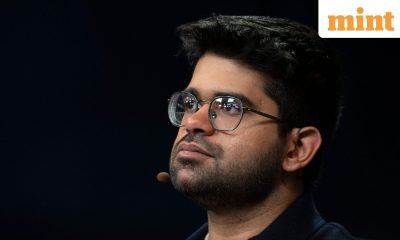
 Technology3 days ago
Technology3 days agoPerplexity faces harsh crowd verdict at major San Francisco AI conference: ‘Most likely to flop’ – Crypto News
-
Business1 week ago
Post-Giveaway Supply Shock: Impact on FUNToken’s Liquidity and Market Depth – Crypto News
-
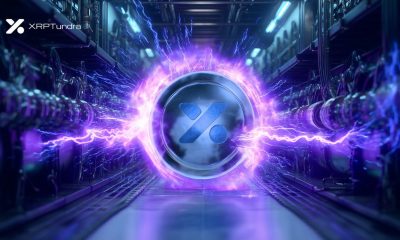
 Cryptocurrency1 week ago
Cryptocurrency1 week agoLearn How This New Altcoin is Merging XRP and Solana Together in 2025 – Crypto News
-
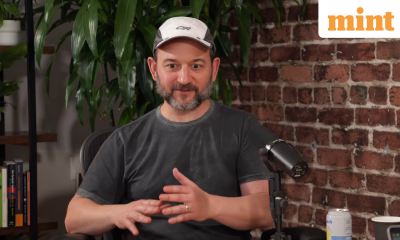
 Technology1 week ago
Technology1 week agoWho is Noam Shazeer? AI leader Google paid $2.7 billion to hire, now sparking internal tensions – Crypto News
-
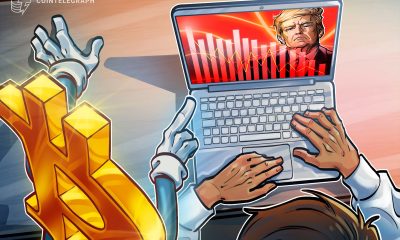
 Blockchain1 week ago
Blockchain1 week agoTrump Media Reveals Bitcoin and Cronos Holdings Amid Q3 Loss – Crypto News
-
Business1 week ago
XRP Set for a Big Week as Canary Capital ETF Launches on November 13 – Crypto News
-
Cryptocurrency1 week ago
Can Dogecoin Price Hold Above $0.17 Amid Weekly Surge? – Crypto News
-

 Cryptocurrency7 days ago
Cryptocurrency7 days agoXRP’s Big Moment? Why Nov. 13 Could Be the Day Ripple Investors Have Waited For – Crypto News

